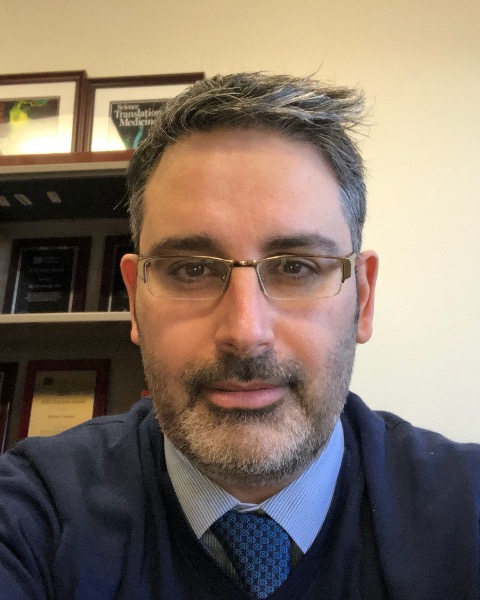
Michail S. Lionakis, MD, ScD
Chief, Fungal Pathogenesis Section, Laboratory of Clinical Immunology & Microbiology
National Institute of Allergy and Infectious Diseases (NIAID)/National Institutes of Health (NIH)
Disclosure(s): No financial relationships to disclose
Dr. Lionakis is a physician-scientist and Head of the Fungal Pathogenesis Section in the Laboratory of Clinical Immunology and Microbiology, NIAID. He obtained his MD and ScD degrees from the Univestiry of Crete, Greece. He did postdoctoral research training at MD Anderson Cancer Center, Houston, followed by Internal Medicine Residency at Baylor College of Medicine, Houston, and Infectious Disease Fellowship at NIAID/NIH. Following research training at NIAID, he stayed as faculty at NIH and received tenure in 2017. Dr. Lionakis' laboratory research focuses on 1) better understanding the genetic and immune defects that underlie enhanced susceptibility to mucocutaneous and invasive fungal infections in humans and on 2) cellular and molecular factors that regulate the immune response against mucosal and invasive candidiasis and invasive aspergillosis in clinically relevant animal models. The laboratory's long-term goals are 1) to understand the pathogenesis of mucosal and invasive candidiasis and invasive aspergillosis, 2) to use this knowledge to identify patients at risk for developing these diseases and to improve their outcomes, 3) to improve care for patients with inherited and acquired susceptibility to fungal disease, and 4) to discover novel genetic and acquired predisposing factors for human fungal disease. To this end, the lab utilizes in vitro cell culture systems and clinically relevant mouse models of mucosal and systemic Candida infections and pulmonary Aspergillus infections, and enrolls patients with inherited and acquired susceptibility to candidiasis, aspergillosis and other fungal infections to study host-fungal interactions by using a variety of immunological, biological, and imaging approaches.
Poster(s):
-
Friday, October 18, 202412:15 PM - 1:30 PM US PTSaturday, October 19, 202412:15 PM - 1:30 PM US PT
